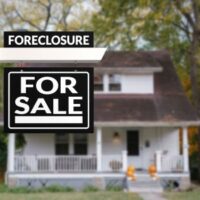Can You File Bankruptcy After a Foreclosure or Repossession? Rebuilding After Losing Property

Experiencing a foreclosure or repossession is emotionally overwhelming and financially devastating. Losing a home or vehicle, often symbols of stability and independence, can leave you feeling defeated, anxious, and uncertain about your financial future. It is important to know that even after such difficult events, there are still paths to financial recovery and stability.
One such avenue worth considering is bankruptcy, which can still be beneficial even after the loss of property.
Your Situation After Foreclosure or Repossession
Foreclosures and repossessions typically happen when financial hardships become too significant to manage. Perhaps unexpected medical expenses piled up, or job loss and income reduction made your financial commitments unmanageable. Regardless of the reasons, losing your home or vehicle does not mean you’re without options or rights to regain control and rebuild your financial life.
The aftermath of these losses can linger, especially as creditors continue to seek deficiency judgments. A deficiency judgment occurs when your home or car is sold for less than what you owed, leaving you responsible for the remaining debt. This can prolong your financial hardship and stress. Bankruptcy can directly address these residual debts, providing a critical pathway toward financial recovery and emotional relief.
How Bankruptcy Can Still Help After Property Loss
Even after foreclosure or repossession, bankruptcy offers valuable protections and benefits. Filing for bankruptcy can discharge outstanding debts resulting from deficiency judgments. This means that instead of continuing to be burdened by debts tied to properties you no longer own, bankruptcy allows you to wipe the slate clean and move forward financially.
Immediately upon filing bankruptcy, an automatic stay goes into effect, halting all creditor collection efforts, including lawsuits, wage garnishments, and harassing phone calls. This provides immediate emotional relief, as the constant pressure from creditors stops, enabling you to regain a sense of control and peace of mind.
Chapter 7 Bankruptcy After Foreclosure or Repossession
Chapter 7 bankruptcy is especially useful after a foreclosure or repossession if you have significant unsecured debts, such as credit cards, medical bills, and unsecured loans. Under Chapter 7, most unsecured debts can be discharged entirely, helping you achieve a fresh financial start.
If you’ve recently experienced foreclosure or repossession and face substantial deficiency judgments or other lingering unsecured debt, Chapter 7 bankruptcy could help eliminate these obligations. This clears the path toward rebuilding your credit and financial health without the ongoing stress of old debts.
Chapter 13 Bankruptcy for Strategic Rebuilding
In situations where you might have some remaining assets you wish to protect, Chapter 13 bankruptcy could be an effective tool. Although Chapter 13 involves a structured repayment plan over three to five years, it provides a manageable way to handle remaining debts while protecting your current assets. Even if you’ve already lost property, Chapter 13 can reorganize remaining debts into affordable monthly payments, helping you regain financial stability.
Additionally, Chapter 13 bankruptcy can potentially reduce the amount owed on certain secured debts, such as car loans, under specific circumstances. This may provide an advantage if you have other secured debts remaining and seek to preserve your remaining property and financial security.
Emotional Benefits of Bankruptcy After Losing Property
Bankruptcy is not merely a financial decision—it is also an emotional and psychological one. The stress, shame, or embarrassment that can accompany foreclosure or repossession often leaves individuals feeling isolated and overwhelmed. Filing for bankruptcy after these events can provide much-needed emotional relief, signaling a clear turning point toward recovery.
Many people report significant mental health improvements following bankruptcy because it ends creditor harassment, stops legal actions, and provides a structured path toward financial recovery. Understanding that your debts are being managed legally and effectively allows you to focus your energy on rebuilding rather than continuously coping with past debts and losses.
Rebuilding Credit After Bankruptcy
One common concern after filing bankruptcy is the impact on credit. While it is true that bankruptcy affects your credit initially, the effect is temporary. After bankruptcy, proactive steps such as obtaining secured credit cards, timely paying bills, and closely monitoring your credit reports can quickly begin rebuilding your credit score.
Many individuals find that, within a relatively short period, they qualify for new credit lines and can demonstrate responsible financial habits. In some cases, bankruptcy actually provides a clearer path to improving credit compared to continuing to struggle under overwhelming debt obligations.
Consult with Los Angeles Foreclosure Protection Lawyers
If you have experienced a foreclosure or repossession, consulting with knowledgeable Los Angeles foreclosure protection lawyers can significantly aid your recovery process. A qualified legal professional can assess your unique situation, guide you through your available bankruptcy options, and support you in developing a clear strategy for financial and emotional recovery.
Contact Wadhwani & Shanfeld
At Wadhwani & Shanfeld, our experienced attorneys are committed to helping you move forward positively after foreclosure or repossession. We provide empathetic and comprehensive legal guidance tailored to your situation, ensuring you understand your rights and options fully. Reach out today for a confidential consultation, and let us help you rebuild your financial future.
Sources:
S. Courts: Bankruptcy Basics
Consumer Financial Protection Bureau: Foreclosure Resources
